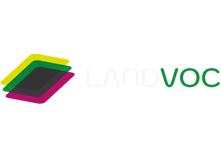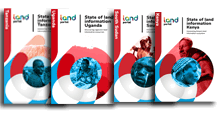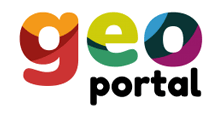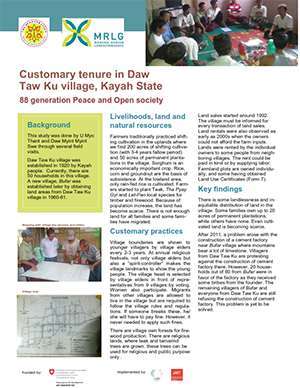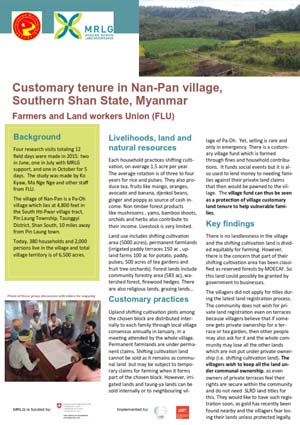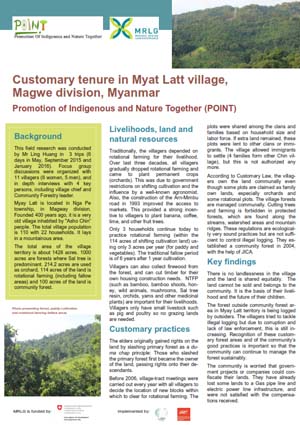Details
Location
Contributions
Displaying 1031 - 1040 of 2403Briefing Note: A Collaborative Approach to Human Rights Impact Assessments
This briefing note, co-authored with the Danish Institute for Human Rights and the Sciences Po Law School Clinic, outlines a new approach to conducting human rights impact assessments (HRIAs) of business operations or projects, which brings together project-affected people, the company, and other stakeholders to jointly design and implement an assessment.
A Collaborative Approach to Human Rights Impact Assessments
This paper provides guidance on how to conduct collaborative and participatory risk assessments, paying attention to the human rights of project-affected people. It was written for stakeholders who seek more effective strategies for investigating the human rights impacts of business projects or operations, and who wish to make their human rights impact assessments more inclusive and responsive, or who seek to encourage greater buy-in from other stakeholders.
Sciences Po
A Sciences Po on aime mélanger les approches et croiser les regards.
Cette tradition de mixité et de pluridisciplinarité fait de Sciences Po un lieu privilégié de rencontre entre la pensée et l’action, qui entend jouer un rôle actif dans le débat public.
What we do
The Land Portal Foundation believes that access to information is crucial for achieving good land governance and securing land rights for landless and vulnerable people. Improving access to land-related data and information is our mission. This is what we do:
Provide a platform for land data, publications, news, blogs, multimedia content and much more from an international network of organizations and institutions. Aggregating diverse and highly dispersed content helps to make hidden data available to everyone.
Nurture the information ecosystem by linking land databases, bringing fragmented data collections together and enriching content with metadata that complies with Open Data standards and principles. Fostering a healthy and diverse ecosystem of land-related information helps to improve the potential impact of data and ensures information is easily searchable and discoverable.
Stimulate debate among those working on land-related issues around the world through events, discussions and webinars. Online and offline dialogues help raise awareness of hidden issues (e.g. sexual extortion in the land sector) and provide opportunities for collaboration between diverse groups and organizations.
Visualize and synthesize data from diverse sources into unique portfolios of contextualized and actionable land governance information. Our thematic and country portfolios provide free virtual repositories of bibliographic and multimedia resources, helping to reveal new trends and expose existing gaps in the information landscape.
Support information providers from the land sector to utilize Open Data standards and encourage the creation and uptake of a standards-based data infrastructure based upon FAIR (Findable, Accessible, Interoperable and Reusable) principles. The increased adoption of commonly agreed data standards is helping information derived from local groups, national organizations and international institutions to coexist within the wider information ecosystem.
Explain and monitor indicators on land governance including the Sustainable Development Goals, the Voluntary Guidelines on the Responsible Governance of Tenure (VGGTs) and other international/regional frameworks for land monitoring. Showcasing and examining land monitoring instruments is helping to raise awareness and increase uptake of key indicators.
The work of the Land Portal is designed to achieve our three core objectives
-
Improve the documentation, mapping and monitoring of land governance issues.
-
Democratize the information ecosystem and strengthen flows of land governance data, from all perspectives and all levels.
-
Promote, inform and enrich the global debate on land issues.
We implement a range of programs and activities, calibrated to meet these core objectives. Here are some examples of recent/ongoing projects by the Land Portal:
You can read more about the challenges we face, our theory of change, the goals we set ourselves, and the activities we undertake in the documents below.
Land Portal's Theory of Change (updated 2022)
Land Portal's strategy document (published in 2019, reviewed in 2022)
Land Portal's latest annual report.
We collaborate with a wide range of local groups, national and international organizations to achieve our challenging objectives. Find out more about collaborating with the Land Portal.
Guia de pesquisa na Land Library
A Land Library (Biblioteca da Terra) do Land Portal é um repositório on-line gratuito com mais de 20.000 recursos relacionados com terra. Todos os recursos são adequadamente referenciados, tornando os itens muito mais fácil de encontrar, tanto para iniciantes como para pesquisadores avançados
Neste Guia de Pesquisa, pode encontrar opções sobre como procurar um recurso específico que está tentando encontrar.
Se identificarr um bug ou alguma sugestão sobre como podemos melhorar a Land Library ou este Guia de Pesquisa, não hesite em entrar em contato com a equipe da Biblioteca através de landlibrary@landportal.info.
1. Pesquisa simples através de palavras-chave
Você pode inserir palavras-chave, como tópicos ou países, na barra de pesquisa simples para encontrar informações relevantes para sua pesquisa. O mecanismo de pesquisa recuperará os primeiros registros que contêm todas as palavras-chave e, posteriormente, os registros que contêm algumas das palavras-chave inseridas. O mecanismo de pesquisa procurará as palavras-chave nos campos de metadados dos registros (título, descrição, etc.).
Ao inserir termos na barra de pesquisa, lembre-se dos seguintes elementos:
- O mecanismo de pesquisa não diferencia maiúsculas de minúsculas
- O mecanismo de pesquisa aceitará os seguintes operadores "booleanos": AND, OR & NOT. Por exemplo:
- Indonésia and lei costumeira;
- Indonésia not direito costumeiro;
- Indonésia or Malásia and direito costumeiro.
- O motor de busca irá procurar palavras exatas se você colocar as palavras-chave “entre aspas”, como segue: "posse costumeira".
2. Pesquisa avançada por foco geográfico
Através do menu de pesquisa avançada, você pode refinar sua pesquisa pelo foco geográfico do recurso. Se você estiver procurando por um recurso que se concentre num determinado país ou região, você pode selecioná-lo através de um menu suspenso ou começar a digitar o país ou região e ter o campo a auto-completar a palavra que você está digitando. A seleção dos países ou regiões através deste formulário é uma lista fechada - o que significa que o termo precisa existir na lista de países do Land Portal. O Land Portal segue a Lista de áreas e regiões da ONU.
3. Pesquisa avançada de tipo de recurso
Através do menu de pesquisa avançada, você pode refinar sua pesquisa pelo tipo de recurso. Se você estiver procurando por um tipo específico de recurso, você pode selecioná-lo através de um menu suspenso ou começar a digitar a palavra-chave e ter o campo a auto-completar a palavra que você está digitando. A seleção de tipos de recursos através deste campo é de uma lista fechada - o que significa que os termos precisam de existir na lista de tipos de recursos do Land Portal. Aceda a esta página para saber mais sobre os tipos de recursos usados no Land Portal.
4. Pesquisa avançada por Provedor de Dados
O Provedor de Dados da Land Library é um website ou biblioteca a que o Land Portal agrega metadados de grande escala. O Land Portal utiliza importadores, um módulo técnico, para extrair os metadados de, por vezes, milhares de recursos. A lista de organizações neste menu suspenso permite pesquisar um ou mais destes provedores de dados específicos.
5. Pesquisa avançada de Conceitos Relacionados
Uma maneira mais eficaz de pesquisar conceitos relacionados com a governança da terra é o recurso a palavras-chave tópicas através do campo de Conceitos relacionados no filtro de pesquisa avançada. Este filtro seleciona palavras-chave tópicas de uma lista controlada, o LandVoc. Usar uma lista controlada é mais eficiente, porque assim não é possível perder o recurso que menciona o sinónimo ou a tradução da palavra-chave que você digitou. A lista completa de conceitos relacionados com terra que estão incluídos no LandVoc pode ser encontrada nesta página.
The 88 Generation Peace and Open Society
THE 88 GENERATION (Peace & Open Society) is a Political Organization that is to build peace and promote the civil society in Myanmar.
Customary Tenure in Daw Taw Ku Village, Kayah State, Myanmar
The poster presents an overview of land, livelihoods and customary practices in Daw Taw Ku village, Kayah State, Myanmar. This poster is one of a five village case studies produced by partner organizations during field-based training on how to document customary tenure systems, supported by MRLG.
Customary Tenure in Nan-Pan Village, Southern Shan State, Myanmar
The poster presents an overview of land, livelihoods and customary practices in Nan-Pan Village, Southern Shan State, Myanmar. This poster is one of a five village case studies produced by partner organizations during field-based training on how to document customary tenure systems, supported by MRLG.
Promotion of Indigenous and Nature Together
POINT (Promotion of Indigenous and Nature Together) was established in March 2012. It is started as a response to the lack of organization led by “Indigenous Peoples” working for Indigenous Peoples’ issues in Myanmar. In the past, only the religious organizations are the strong civil society working for its related indigenous people’s needs of humanitarian and development assistance to some extent. Therefore, the organization POINT was formed in order to fill the gap of promoting the rights of indigenous peoples along with increased awareness on environmental related knowledge.
Customary Tenure in Myat Latt Village, Magwe Division, Myanmar
The poster presents an overview of land, livelihoods and customary practices in Myan Latt Village, Magwe Divsion, Myanmar. This poster is one of a five village case studies produced by partner organizations during field-based training on how to document customary tenure systems, supported by MRLG.





